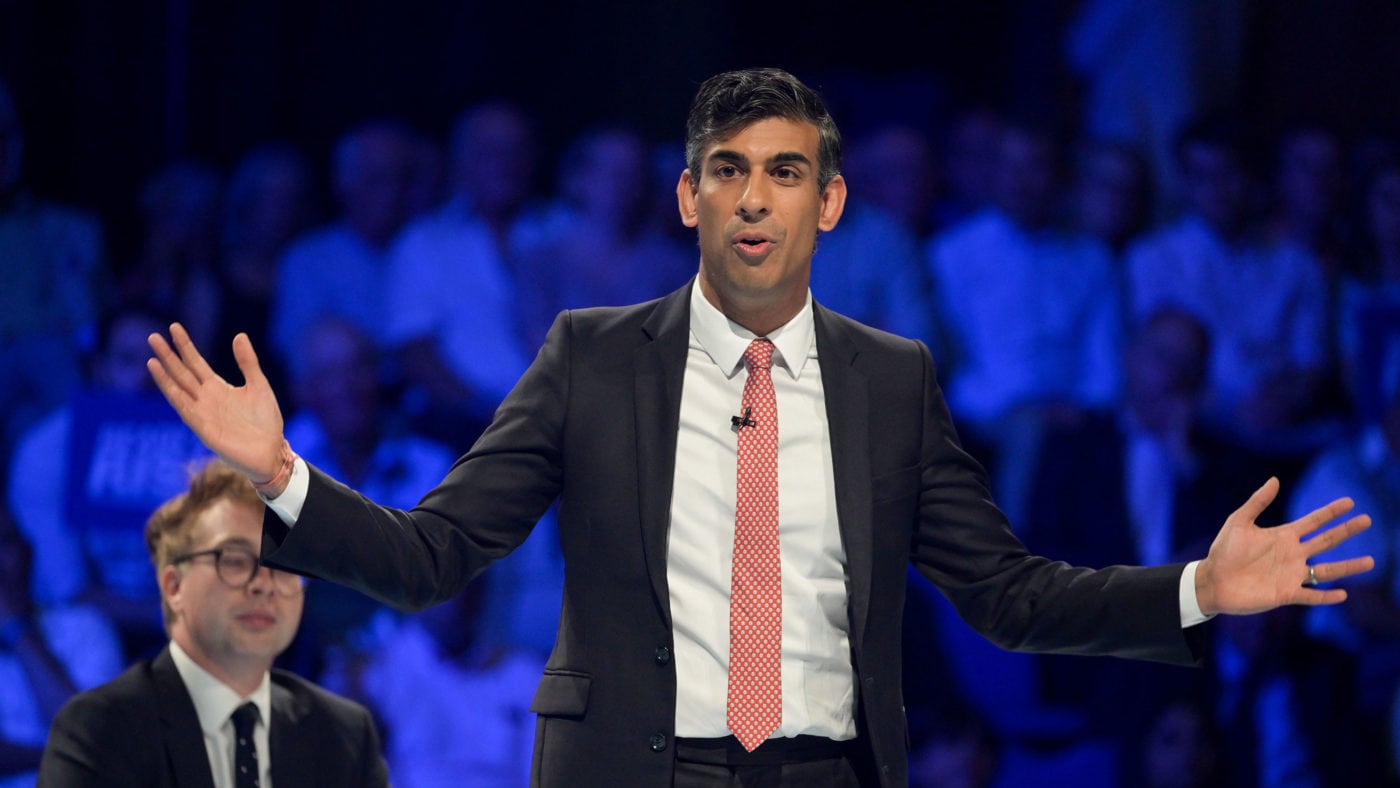What is extreme hatred of Britain? Yesterday, enduring a five-hour rail journey to London – a first class customer on third-world infrastructure – I might have strayed over the line myself. Today, leadership candidate Rishi Sunak has suggested that this is the nebulous benchmark for referral to our counter terrorism Prevent programme.
This had predictable reaction in the Twittersphere. There was the usual ‘full house’ of fascism bingo and a torrent of subversive derision. Who would decide what extreme vilification was? How could a sentiment shared by a large portion of the country, fed up with how broken it has become, be treated? How would Prevent cope with legions of nihilistic teenagers referred in after being grounded for backchat?
There’s little meat on the bones, of course. This is a leadership campaign and the runes say Sunak is falling behind so perhaps, as online one wag had it, this is a last desperate pitch to the ‘bowls clubs of Kent’ where drowsing members remain to be harvested. But there is a serious point here about proportionality and preventing terrorism.
Violent extremists of any ideology who attack liberal democracies like to have their work done for them. It’s a ‘force multiplier’ that always seeks to amplify their violence into an over-reaction by the state. The late and unlamented Ayman al-Zawahiri is a perfectly rational, if odious, example of this tactic in use. His leadership of Al Qaeda after 2011 pursued a ‘civilisational jihad’ across the globe to subvert and destroy democracies from within. The resultant tightening of laws and restrictions in response to terrorist outrages run the risk of undermining democratic foundations, including freedom to dissent, without having any discernible counter-terrorism benefit. Closer to home, the notorious banning of Sinn Fein from the airwaves in Britain and Ireland in the 80s and 90s to deny terrorist apologists the ’oxygen of publicity’ did precisely nothing to stem IRA extremism and was used as a republican propaganda tool. Be careful what you wish to ban.
Here’s the essence of the problem: We have a poorly thought through initiative (that might in the end have as much legs as Liz Truss doomed regional pay policy) that extreme hatred of this country would constitute grounds for referral to our counter-terrorism Prevent programme. We are awaiting the publication of a long-delayed review of that programme by William Shawcross. My organisation, the Counter Extremism Project contributed to that review and we are hopeful – leaks support this view – that, far from expanding the purview of counter radicalisation referrals, it will be curtailed from the current mission creep that has jammed the works with people who pose no real threat. Prevent needs to be professionalised, nationalised and refocused on those who have the capacity to do real harm. This would not include people who are perfectly entitled to hate the country, however extremely, providing they do not use or encourage violence.
That final dimension is worth dwelling on. We already have laws in the statute books that, quite rightly, criminalise the glorification of terrorism. There are specific provisions and safeguards here to allow lawful dissent, but the truth is they are hardly ever used. In Northern Ireland, that regional Upside Down of counter extremism, it is possible to march around in paramilitary garb and eulogise terrorist murderers without any fear of having your collar felt.
It would be better, but obviously not as eye-catching, to review how current legislation is operating than launching a thousand memes on re-education camps for people who grumble about the weather. It would be better to fast-track some of the legislative ideas, advanced by Jonathan Hall QC, to combat still rampant extremism on prison landings than look for more reds under the bed.
Sunak has done something useful at least – focusing attention on how the state deals with violent extremism and energising the debate on the limits of state intervention in a democratic society. He is absolutely right to draw attention to the absurd and dangerous myth that neo-Nazi extremism is equivalent in threat to its dramatically more lethal Islamist counterpart. But we need more precision and less heat in this space. One of the reasons I love my country is that there is freedom here for people who hate it to do so. Freedom is not free.
Click here to subscribe to our daily briefing – the best pieces from CapX and across the web.
CapX depends on the generosity of its readers. If you value what we do, please consider making a donation.


